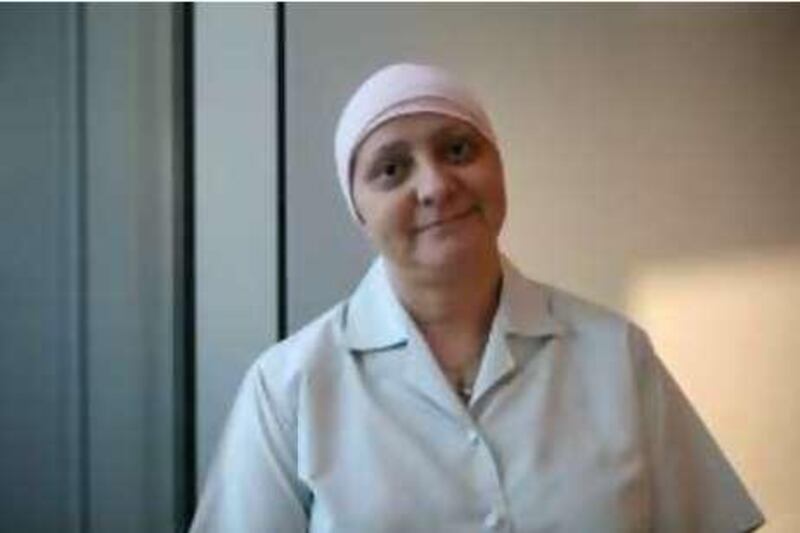Breaking bad news is part of a doctor's job, but some news is harder to discuss than others - particularly when the traditional sensitivities matter. Just a generation ago, a diagnosis of cancer - or saratan in Arabic - meant death.
The disease, in its different forms, was usually diagnosed only in the very advanced stages and treatments were limited, particularly for those who could not afford to travel abroad for relatively advanced care in western hospitals. It is this memory that is still lodged in the minds of many Emiratis, especially older people, and it is therefore no surprise that when a doctor utters the word saratan, it is met with fear, or even denial.
Wary of the burden of this history, health professionals say doctors must be careful when delivering a diagnosis of cancer. "The stigma is huge in the society," said Dr Tahani Mustafah, a psychologist at Sheikh Khalifa Medical City. "There is the same social stigma with mental illnesses; there are certain things people don't like to discuss and it's a problem." Within some Arab communities, chronic diseases such as cancer and diabetes are often considered hereditary - even when there is no genetic link - and the stigma is perceived to reflect on the whole family, health researchers say.
Research into the perceptions of illness among Arab-Americans by the Department of Health and Human Services in the US found there was a fear that disclosure of serious illnesses could "reduce the marriageability of children", and this needed to be taken into account by doctors dealing with the seriously ill and their families. These stigmas could lead to late diagnosis, if people were reluctant to seek help, or refused to believe a first diagnosis, according to health professionals in the UAE, where it is not uncommon for people to seek several medical opinions.
In the UAE, breast cancer is often diagnosed when well advanced - detection is, on average, much later than in many western nations - and this is consistent with the figures in other Arab nations. Many Arab women do not undergo mammograms, which can detect the cancer at an early stage, due to perceptions of the illness, found a 2004 study of Arab-Israeli women published in the peer-reviewed Women and Health journal.
"The women perceived the chain of events that begins with screening for breast cancer as possibly resulting in cancer diagnosis, and that having breast cancer would lead to an inability to fulfil female roles," the research paper said. Many women who took part in the study believed their role as wife and mother would be compromised by a cancer diagnosis, the researchers found. They recommended awareness campaigns to ensure women sought mammograms, increasing the chances of early detection.
However, even awareness campaigns must be considered in a cultural framework. "Due to culture, many patients are offended when their doctor is trying to discuss a sensitive issue or a serious disease with them, especially when they do not perceive the risk of getting the disease," said Dr Amer al Kindi, an Emirati GP in the capital. "[Prevention] as a measure is still not largely recognised as an effective tool by people in our society. Some physicians are discouraged to discuss prevention with patients. Other physicians feel the pressure of always having to please the patient with positive news."
However, overcompensating for cultural factors carries a risk for some health professionals. Dr Kindi said doctors and, in particular, western-trained health professionals, feared offending patients "probably due to communication challenges and the perceived cultural gap between doctors and patients". "Doctors and health professionals in the UAE are coming from diverse cultural backgrounds; there is little awareness among these doctors about UAE culture," he said.
But doctors offer hope that the historical understanding of saratan will eventually be replaced with a trust in modern medicines. "People need to realise they can get treated right here," said Dr David Spence, the chair of the department of medicine at Sheikh Khalifa Medical City. In the past, the Government would send patients abroad for treatment when the necessary facilities were not available. This had led to a "lingering pressure" by some people to send sick relatives on often unnecessary trips, seeking treatment that was available "right here on their doorstep", Dr Spence said.
"The reality is the treatment they can get here is the same as abroad." @Email:newsdesk@thenational.ae





